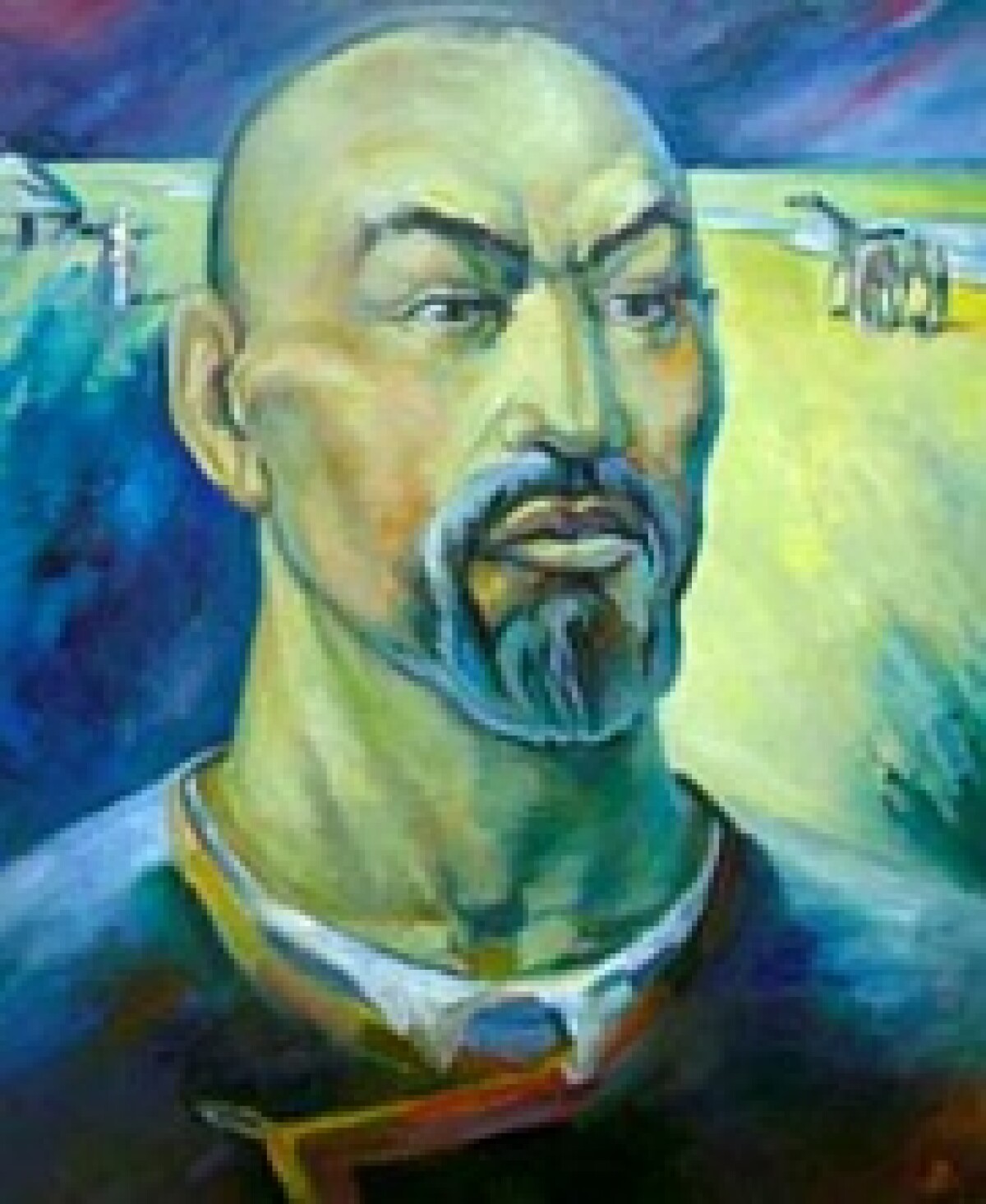Utemisov Makhambet
Makhambet Utemisov was the great Kazakh poet, batyr that played an important role in formation of the Kazakh literature of the XIX century. The nature generously awarded him with his talent of the composer, the masterly performer of kuys, the speaker and the ardent poet.
Makhambet Utemisov was born in the Bokey Horde in the territory of the Western Kazakhstan. The father of future poet Utemis was included into number of the influential people closed to the surroundings of the khan Zhangir of the Bokey horde.
Makhambet got a broad Muslim education, spoke Russian powerfully. The awareness of Koran and language of diplomatic correspondence became a motive for khan Zhangir to entrust education of his son Zulkaynar to Makhambet.
In 1824 he sends Makhambet with the son to Orenburg. The poet lived in Orenburg as the tutor of the khan’s successor about 6 years. Later on, the relationships between khan Zhangir and Makhambet became abrasive, and then the break occurred.
In the spring 1829 in attempt to leave to the Urals Makhambet was caught and shut in the Kalmyk fortress. Here Makhambet composed his kuy (Kazakh song) «A trellised window». Soon he ran from the prison.
Makhambet together with Isatay Taymanov protected interests of the miserable, but the ruling class did not make concessions. It led to a new, more organized mass action of peasants in 1836-1837.
A historian A.F.Ryazanov writes: «Makhambet was the soul of revolt, was very literate in the Russian and Tatar languages, and wrote proclamations on the Horde, messages to Zhangir khan and to Russian government on behalf of Isatay and the people. It drove about on auls, agitated, lifted the people against Zhangir and was first who pushed Isatay on a way of the resolute armed fight».
Even after revolt comes off second-best, his leader Isatay Taymanov perishes, Makhambet does not stop fight. But all his attempts to lift people against khans and sultans again came to the end with failures. Imperial officials, the Kazakh governors operating steppes, nourish the idea of mean murder of the rebellious poet.
The creative heritage of Makhambet is about hundred poems. It is known that he did not write down his poems. Akyns (Kazakh poets) Sherniyaz, Beket, Murat, and Lukpan kept poetic heritage of Makhambet for the subsequent generations.
Poems of Makhambet are the program works defining the purposes and tasks of the risen. In his remarkable improvisations images of national defenders, including a heroic image of Isatay Taymanov, as the leader of country revolt are created.
According to the Russian scientist and writer E.Kowalewski (1811-1868) who has got acquainted with Utemisov during his travel around the Kazakh steppe, he outstanded with courageous character, honesty, eloquence.
Kowalewski writes: «I understood him as a nature of a heroic warehouse, the genuine patriot, passionately looking for soul and big charm». Makhambet Utemisov is recognized also as the author of numerous songs, as a talented kyuyshi (Kazakh singer) and dombra player.
Poems of the poet were translated more than once into Russian and were repeatedly published by separate collections.
The poetry of Makhambet is still considered as difficult translated texts.
Makhambet Utemisov as the insurgent poet was brought up by on vivifying traditions of heroic poems. He loved sincerely the people and sang with inspiration of intimate dreams of the people of freedom. His realistic poems are got by a spirit of the age, prompted by class fight of the simple people. His freedom-loving verses were handed down, are handed down and will be handed down by descendants inspiring and spiritualizing their life.
Share:









